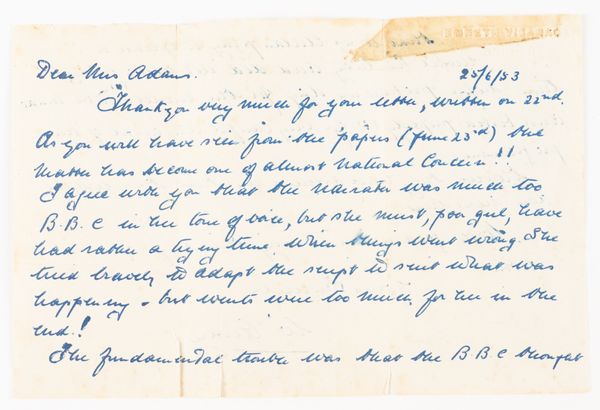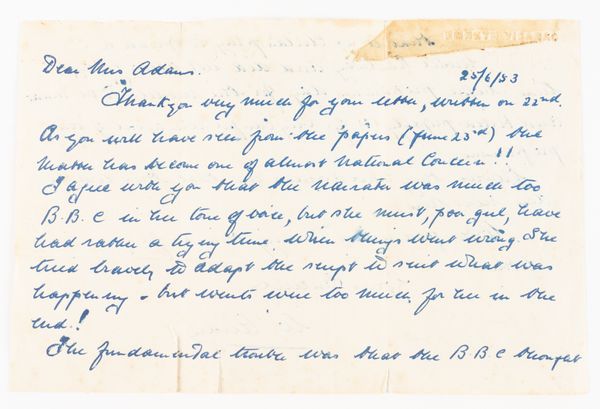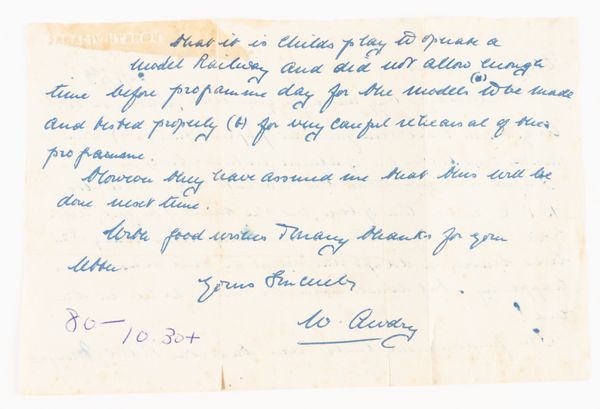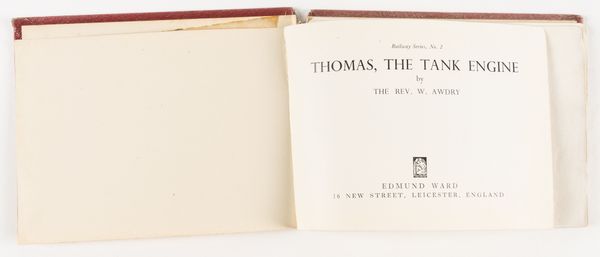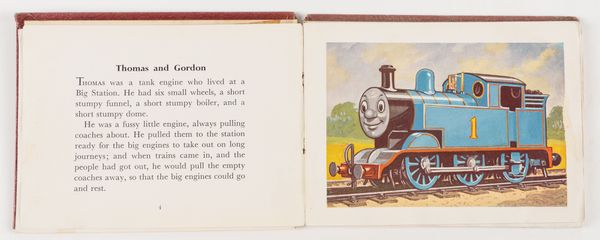THOMAS THE TANK ENGINE - Rev. Wilbert AWDRY (1911-97). A 2-page autograph letter, signed, dated "25.6.53", relating to the first live TV broadcast of 'The Sad Story of Henry' on June 14 1953; with 'Thomas, the Tank Engine' (London, [1950 or earlier]). (2)
| Estimate: | £200 - £300 |
| Hammer price: | £320 |
THOMAS THE TANK ENGINE - Rev. Wilbert AWDRY (1911-97). A 2-page autograph letter, signed, on paper blind-stamped "Emneth Vicarage, Wisbech", dated "25/6/53", stating, "Dear Mrs Adams, Thank you very much for your letter, written on 22nd. As you will have seen from the papers (June 23rd) the matter has been one of almost national concern!! I agree with you that the narrator was much too B.B.C. in the tone of voice, but she must, poor girl, have had rather a trying time. When things went wrong, she tried bravely to adapt the script to suit what was happening - but events were too much for her in the end! The fundamental trouble was that the B.B.C. thought that it is child's play to operate a model Railway and did not allow enough time before programme day for the models (a) to be made and tested properly (b) for very careful rehearsal of their programme. However they have assured me that this will be done next time. With good wishes and many thanks for your letter, Yours sincerely, W. Awdry." Sold with the letter is W. Awdry's Thomas, the Tank Engine (Leicester, Edmund Ward, [n.d. but January 1950 or before], small oblong 16mo, coloured plates by C. Reginald Dalby, 3 companion titles listed at the end, original red cloth gilt (text block detached and loose), "Railway Series, No 2", the front free endpaper inscribed, "To Stephen, With love from Peter, 20.1.50"). The letter refers to an event which has passed into television folklore. On Sunday June 14th 1953 the BBC broadcast an adaptation, complete with model trains, of 'The Sad Story of Henry', a title which proved prophetic. During the live transmission from Lime Grove Studios a train derailed on the set and was hurriedly returned to the track by the very obvious hand of a crew-member. The flustered narrator, Julia Lang (who is best remembered for presenting 'Listen with Mother' for many years), did her best to adapt the script to mitigate the accident but it was not, apparently, wholly convincing. The incident received widespread coverage in the national press, the Daily Herald running the story under the headline 'What a Way to Run a Railway'. As a result, the series was abandoned and not revived until three decades later, when it was narrated by Ringo Starr. Since the 1953 broadcast was live and made before TV recording devices, the original programme is now considered irretrievably lost, although a convincingly grainy black-and-white recreation of it (rather disappointingly without the derailment) can be found on YouTube. The proceeds of the sale of this lot will benefit the 'Vision Foundation. London's sight loss charity'. (2)
